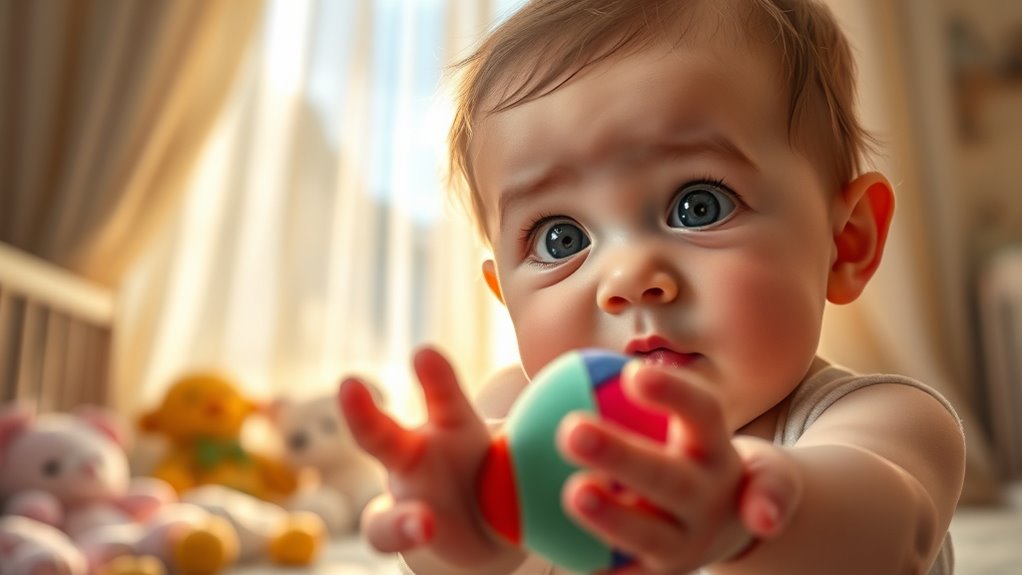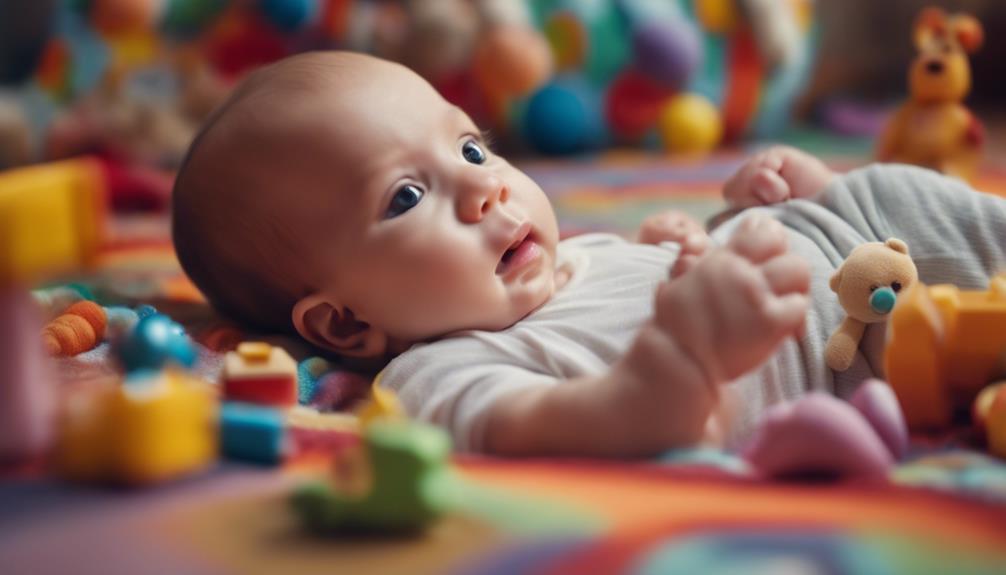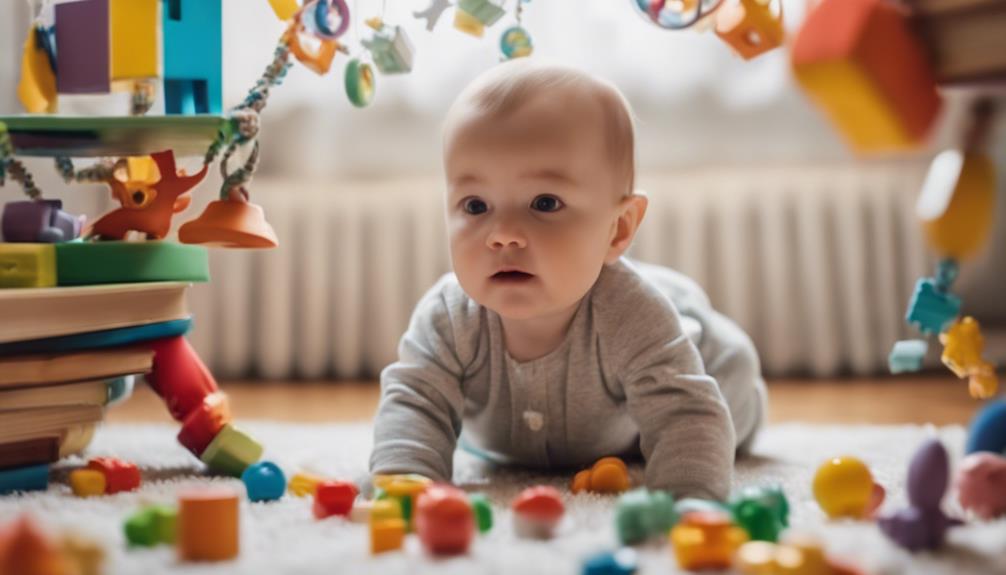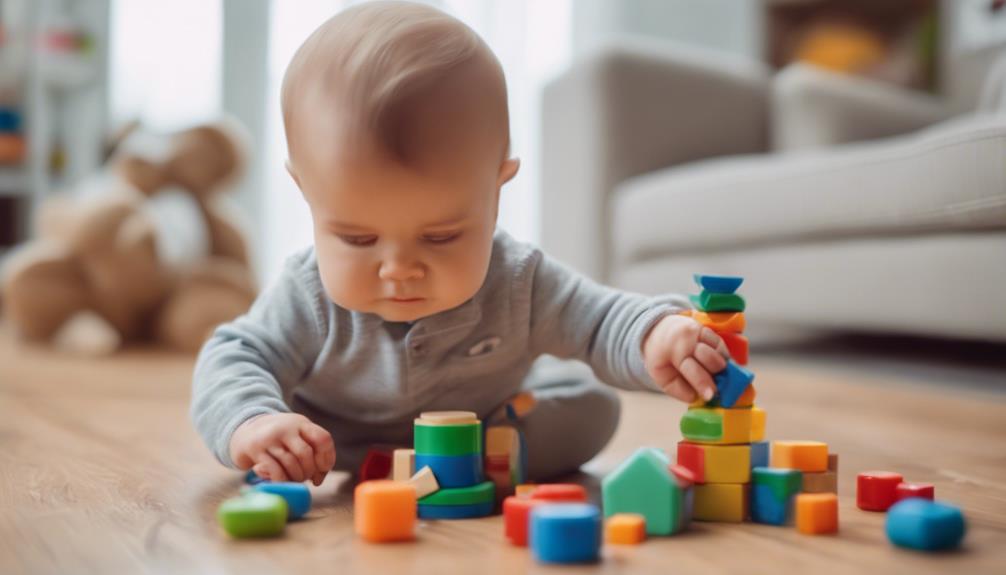Babies can remember more than you might think, even from birth. They recognize voices, tastes, and familiar faces, especially if experiences are repeated or emotionally significant. Their memory capacity is limited and mainly influenced by brain development and environment. Early memories tend to be implicit, shaping their behavior without conscious recall. As their brain, especially the hippocampus, matures, their memory skills improve. To understand how their memory continues to grow, keep exploring these fascinating stages.
Key Takeaways
- Infants mainly have implicit memories that influence behavior but limited conscious recall of specific events.
- Memory development depends on hippocampal growth, improving recognition of familiar faces, voices, and routines over the first year.
- Early memories are often context-dependent and fade quickly unless reinforced through repetition or emotional significance.
- Young babies recognize basic stimuli like tastes and sounds, but detailed, long-lasting memories emerge as their brains mature.
- Overall, babies remember only limited information initially, with memory capabilities gradually improving with brain development.
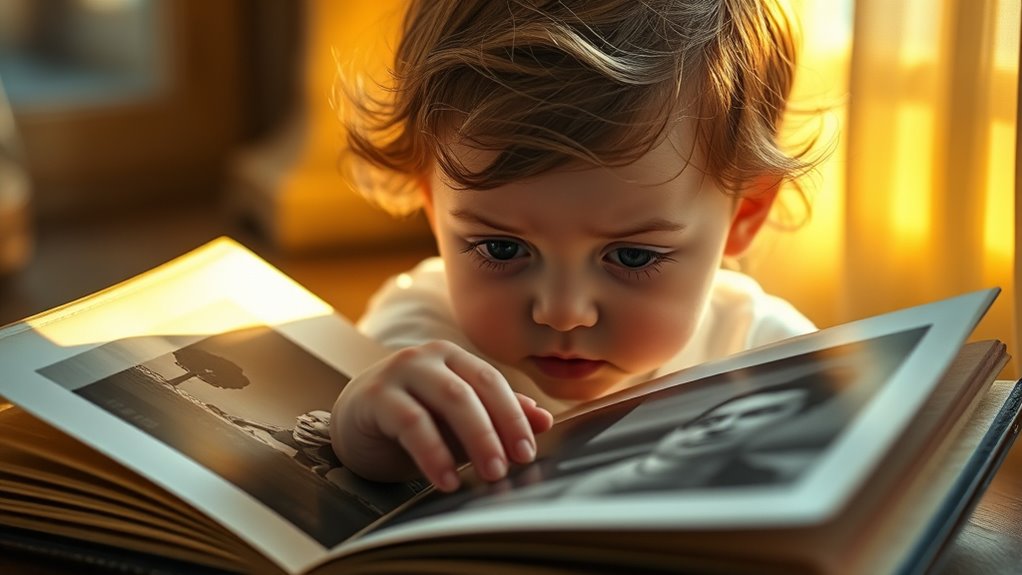
Have you ever wished you could remember anything effortlessly? It’s a common desire, especially when watching babies seem to absorb new experiences so quickly. As you observe their curious eyes and tiny hands reaching for objects or smiling at familiar faces, you might wonder just how much they truly remember. The answer lies partly in understanding how their brains develop, particularly the hippocampus, a vital structure for memory formation. In infants, the hippocampus is still maturing, which influences their recall abilities. During the first months, their hippocampus isn’t fully developed, making their ability to remember events or details quite limited. This is why you might notice that babies seem to forget things quickly or don’t seem to remember people they’ve met only once or twice. However, even with this limited development, infants do remember certain things, especially if those experiences are repeated or emotionally significant.
As the hippocampus develops during the first year, infants start showing improved recall abilities. They begin to recognize familiar caregivers, respond to routines, and remember objects or toys they’ve seen before. This development is gradual, and their memory capabilities are still quite different from adults. For example, a baby might not remember a specific toy from last week, but they’ll remember their favorite blanket or a familiar song. Their memories tend to be context-dependent, meaning they’re more likely to recall things in the environment where they first experienced them. As the hippocampus matures, their ability to form more complex and lasting memories increases, although it’s still nowhere near adult levels. This ongoing development explains why young children often seem to forget events quickly or have trouble recalling details from earlier in their lives.
You might be surprised to learn that even newborns have some basic memory abilities, like recognizing their mother’s voice or preferences for certain tastes. These early memories are often implicit, meaning they influence behavior without conscious awareness. The development of brain structures such as the hippocampus plays a crucial role in this process, highlighting how brain growth impacts memory capabilities over time. As their hippocampus develops further, their explicit memory—recalling specific facts or events—becomes more sophisticated. But it’s important to remember that their capacity for memory is a process that unfolds over time, shaped by experiences and brain growth. So, while babies may seem to forget quickly, they’re actually building the foundation for more complex memories later on. Their early recall abilities are just the beginning of a lifelong journey of learning and remembering, driven by continual brain development and the rich experiences you provide.
Frequently Asked Questions
Can Babies Recognize Faces They’ve Never Seen Before?
You might wonder if babies can recognize unfamiliar faces. They do have impressive facial recognition skills early on, allowing them to distinguish familiar faces from unfamiliar ones. While they’re more responsive to known faces, research shows babies can sometimes recognize unfamiliar faces if they’ve seen them briefly before. Their ability to identify unfamiliar faces improves over time, highlighting how their memory and facial recognition skills develop as they grow.
How Long Can Babies Retain Memories From Early Infancy?
You might be surprised to learn that babies can retain memories from early infancy for months, sometimes even years. During early memory development, their infant memory capacity gradually expands, allowing them to recall familiar faces or routines. Coincidentally, recent research suggests that memories formed in the first year can stay with them much longer than we once thought, highlighting how amazing and persistent early memories truly are.
Do Babies Remember Emotional Experiences Vividly?
You might wonder if babies remember emotional experiences vividly. While their emotional recall is developing, research suggests that early memories aren’t as vivid or detailed as those of older children or adults. Instead, their memory vividness focuses more on feelings rather than specific events. Over time, these emotional memories become clearer, shaping their responses and attachment. So, yes, babies do remember emotional experiences, but the vividness is still forming.
At What Age Do Babies Start Forming Lasting Memories?
You might wonder when babies start forming lasting memories. According to early memory development research and infant memory theories, most infants begin to retain memories around six months old. During this time, their brains develop enough to support more durable memory formation. While younger babies experience early memory development, these memories are often fragile and not yet lasting. By around six months, your baby is more capable of forming memories that stick around longer.
Can Babies Remember Sounds or Words They Heard as Infants?
Your baby’s auditory memory is like a sponge soaking up sounds and words from the moment they’re born. They can definitely remember familiar voices, sounds, and words they heard as infants, which supports their language development. This early auditory memory helps them recognize their mother’s voice or favorite lullabies weeks or even months later. So, yes, your little one’s brain is already creating a rich tapestry of memories that shape their language skills.
Conclusion
So, while you might think babies forget everything in an instant, their memories quietly shape who they become. Just as a fleeting glance leaves an imprint beneath your awareness, tiny moments hold unseen significance. Memory isn’t just about recall; it’s about subtle, lasting influence—sometimes invisible, sometimes profound. In this delicate dance of forgetting and remembering, you realize that even the smallest details can leave a lasting magic, shaping a future you’re only beginning to understand.

